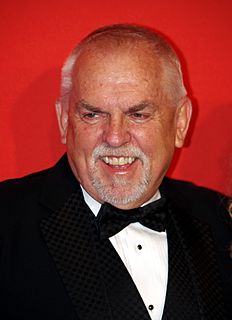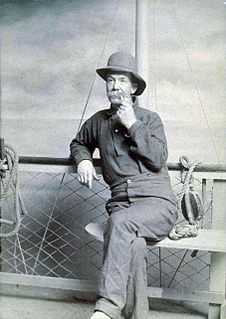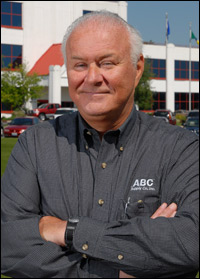Top 385 Fixing Quotes & Sayings - Page 7
Explore popular Fixing quotes.
Last updated on December 22, 2024.
All over the US, there is a need to teach young people to, really, get them out in the backyard, building treehouses, fixing bicycles, because you become a better, more well-rounded, Renaissance personality if you actually know how to do things with your hands. If you can fix the screen door or replace your old garbage disposal, even change the tire on a car, a lot of people don't even know how to do that. We're literally running out of people who know how to do those things, the essential things like plumbing, carpentry, stone masonry, we're literally running out of them.
President Obama, I think, wanted what was best for the country, but I think it didn't work well. I think we have the death spiral, and I think particularly premiums in the individual market are going through the roof. Republicans want what's best for the country, but I think they're not fixing the death spiral of Obamacare. They're going to subsidize it with a lot of taxpayer money. So, characterizing something as mean or generous I think goes to people's motives, and I think it is sort of why we have such an angry country now. We think that people have ill motives.
This is what rituals are for. We do spiritual ceremonies as human beings in order to create a safe resting place for our most complicated feelings of joy or trauma, so that we don't have to haul those feelings around with us forever, weighing us down. We all need such places of ritual safekeeping. And I do believe that if your culture or tradition doesn't have the specific ritual you are craving, then you are absolutely permitted to make up a ceremony of your own devising, fixing your own broken-down emotional systems with all the do-it-yourself resourcefulness of a generous plumber/poet.
When you say to yourself, 'I am going to have a pleasant visit or a pleasant journey,' you are literally sending elements and forces ahead of your body that will arrange things to make your visit or journey pleasant. When before the visit or the journey or the shopping trip you are in a bad humour, or fearful or apprehensive of something unpleasant, you are sending unseen agencies ahead of you which will make some kind of unpleasantness. Our thoughts, or in other words, our state of mind, is ever at work 'fixing up' things good or bad in advance.
Religion restricts the play of choice and adaptation, since it imposes equally on everyone its own path to the acquisition of happiness and protection from suffering. Its technique consists in depressing the value of life and distorting the picture of the real world in a delusional manner - which presupposes an intimidation of the intelligence. At this price, by forcibly fixing them in a state of psychical infantilism and by drawing them into a mass-delusion, religion succeeds in sparing many people an individual neurosis. But hardly anything more.
In playwriting, you've got to be able to write dialogue. And if you write enough of it and let it flow enough, you'll probably come across something that will give you a key as to structure. I think the process of writing a play is working back and forth between the moment and the whole. The moment and the whole, the fluidity of the dialogue and the necessity of a strict construction. Letting one predominate for a while and coming back and fixing it so that eventually what you do, like a pastry chef, is frost your mistakes, if you can.
I think I'm still just as conflicted about the war as I always was. On the one hand, I was a soldier carrying out his duty, following his allegiance to his country and to the mission at hand. But yet, there was always this unease plaguing me. "What are we doing here?" "Are we really fixing this country or are we doing more harm than good?" And the most pressing question: "How do we pull ourselves out of this quicksand?" I think I'm still there in that white space you mentioned, trying to get clarity for myself on what this war did to us as a nation.
Unable to maintain their government-granted monopoly, the powerful railroad
interests turned to government to do the regulating and price-fixing which they
were unable to do themselves. In fact, the pressure that induced Congress to
enact the Interstate Commerce Act of 1887 did not come from reformers bemoaning
abuses by the powerful railroad interests; it came from the railroad interests
themselves, asking Congress to shield them against the harsh winds of
competition.
One of the high points in my career came from a time I had with Tim Conway on a film when I had him fall down with laughter. I had this scene with him where I was this mechanic down fixing his car. I can't remember what my line was as written, but they were okay with me doing a made-up line. So Tim asks me what's wrong with his car, and I look up and say, "Well, looks like you got a squirrel caught up in there."
There's something behind the decision to choose to lash out at a woman. The answer to how to fix internet trolling is like fixing sexism. How do you do that? I'm of the opinion that discourse helps, that changing people's minds changes people's actions. On a more practical level, I do enjoy sassing back at trolls, because I always win, because my job makes me better at arguing. If I can frustrate or embarrass a troll, then that lodges in that person's brain that trolling me is not a consequence-free hobby.
In the field one has to face a chaos of facts, some of which are so small that they seem insignificant; others loom so large that they are hard to encompass with one synthetic glance. But in this crude form they are not scientific facts at all; they are absolutely elusive, and can be fixed only by interpretation, by seeing them sub specie aeternitatis, by grasping what is essential in them and fixing this. Only laws and generalizations are scientific facts, and field work consists only and exclusively in the interpretation of the chaotic social reality, in subordinating it to general rules.
We've got the emPHAsis on the wrong sylLAble when it comes to crime in this country. The FBI says burglary and robbery cost U.S. taxpayers $3.8 billion annually. Securities fraud alone costs four times that. And securities fraud is nothing to the cost of oil spills, price-fixing, and dangerous or defective products. Fraud by health-care corporations alone costs us between $100 billion and $400 billion a year. No three-strikes-and-you're-out for these guys. Remember the S&L scandal? $500 billion.
I like doing everything - theater and film, radio and TV, comedy and tragedy. I love it all. And I've never really planned anything - I've always looked at my job in a rather simplistic way. It's like being a plumber. One day you might be fixing an early 20th century showerhead that requires real detailed work. The other day you might just be clearing a sewer. Both jobs are very different, but all the tools come out of the same box. That's the way I look at acting.
If we're open to it, God can use even the smallest thing to change our lives... to change us. It might be a laughing child, car brakes that need fixing, a sale on pot roast, a cloudless sky, a trip to the woods to cut down a Christmas tree, a school teacher, a Dunhill Billiard pipe...or even a pair of shoes. Some people will never believe. They may feel that such things are too trivial, too simple, or too insignificant to forever change a life. But I believe. And I always will.
I believed that by fixing it down in words, I could force sense from all that had happened, that effect would follow cause, and the reason for each event come clear to me. But then I returned one day, to find all my careful scribing gone to fragments of vellum lying in a trampled yard with wet snow blowing over them. I sat my horse, looking down at them, and knew that, as it always would, the past had broken free of my effort to define and understand it. History is no more fixed and dead than the future. The past is no further away than the last breath you took.
I met Indira Gandhi in her office in the government palace. The same office that had been her father's - large, cold and plain. She was sitting, small and slender, behind a bare desk. When I entered, she got up and came forward to give me her hand, then sat down again and cut the preliminaries short by fixing me with a gaze that meant: Go ahead with the first question, don't waste time, I really have no time to waste.
I've come to this belief that, if you show me a woman who can sit with a man in real vulnerability, in deep fear, and be with him in it, I will show you a woman who, A, has done her work and, B, does not derive her power from that man. And if you show me a man who can sit with a woman in deep struggle and vulnerability and not try to fix it, but just hear her and be with her and hold space for it, I'll show you a guy who's done his work and a man who doesn't derive his power from controlling and fixing everything.
During the shooting of a scene the director’s eye has to catch even the minutest detail. But this does not mean glaring concentratedly at the set. While the cameras are rolling, I rarely look directly at the actors, but focus my gaze somewhere else. By doing this I sense instantly when something isn’t right. Watching something does not mean fixing your gaze on it, but being aware of it in a natural way. I believe this is what the medieval Noh playwright and theorist Zeami meant by ‘watching with a detached gaze.’
Ours is not the task of fixing the entire world all at once, but of stretching out to mend the part of the world that is within our reach... One of the most calming and powerful actions you can do to intervene in a stormy world is to stand up and show your soul. Soul on deck shines like gold in dark times. The light of the soul throws sparks, can send up flares, builds signal fires, causes proper matters to catch fire.
If you were charged with fixing the U.S. auto industry, how would you do it?
The guys who run the auto companies are out of touch with their customers and their employees. They ride to work in their limousines. They go up in their elevators and lock themselves in their offices. They don't walk out into the plants. They wouldn't even drive in the neighborhoods where their employees live. They give themselves big bonuses when the company isn't making any money. I'd make them get involved with the people who are building the cars. They've got to become real people.
Worry is different from fear. If fear is like a raging fever, worry is a low-grade temperature. It nags at us, simmers in our souls, hovers in the back of our minds like a faint memory. We may fear certain realities, like death; we worry about vague possibilities. Worry distracts us more than paralyzes us. It is like a leaky faucet we never get around to fixing.
I was always real back and forth about the whole religion and God. That comes from me just dealing with that pain when I was younger, and just growing up, living that particular street lifestyle. It brought my relationship with God into question many times. I wanted to repair that and fix that, and that's what I went in and did. I did all of that. I wrote many albums and all that kind of stuff, but the most important part was fixing my mind, body, and soul; getting it together, really getting it together where I could have a future, and a successful future.
So here I stand before you preaching organic architecture: declaring organic architecture to be the modern ideal and the teaching so much needed if we are to see the whole of life, and to now serve the whole of life, holding no traditions essential to the great TRADITION. Nor cherishing any preconceived form fixing upon us either past, present or future, but-instead-exalting the simple laws of common sense-or of super-sense if you prefer-determining form by way of the nature of materials.
Concentration is not thinking of one thing. On the contrary, it is excluding all thoughts, since all thoughts obstruct the sense of one's true being. All efforts are to be directed simply to removing the veil of ignorance. Concentrating the mind solely on the Self will lead to happiness or bliss. Drawing in the thoughts, restraining them and preventing them from straying outwards is called detachment (vairagya). Fixing them in the Self is spiritual practice (sadhana). Concentrating on the heart is the same as concentrating on the Self. Heart is another name for Self.























